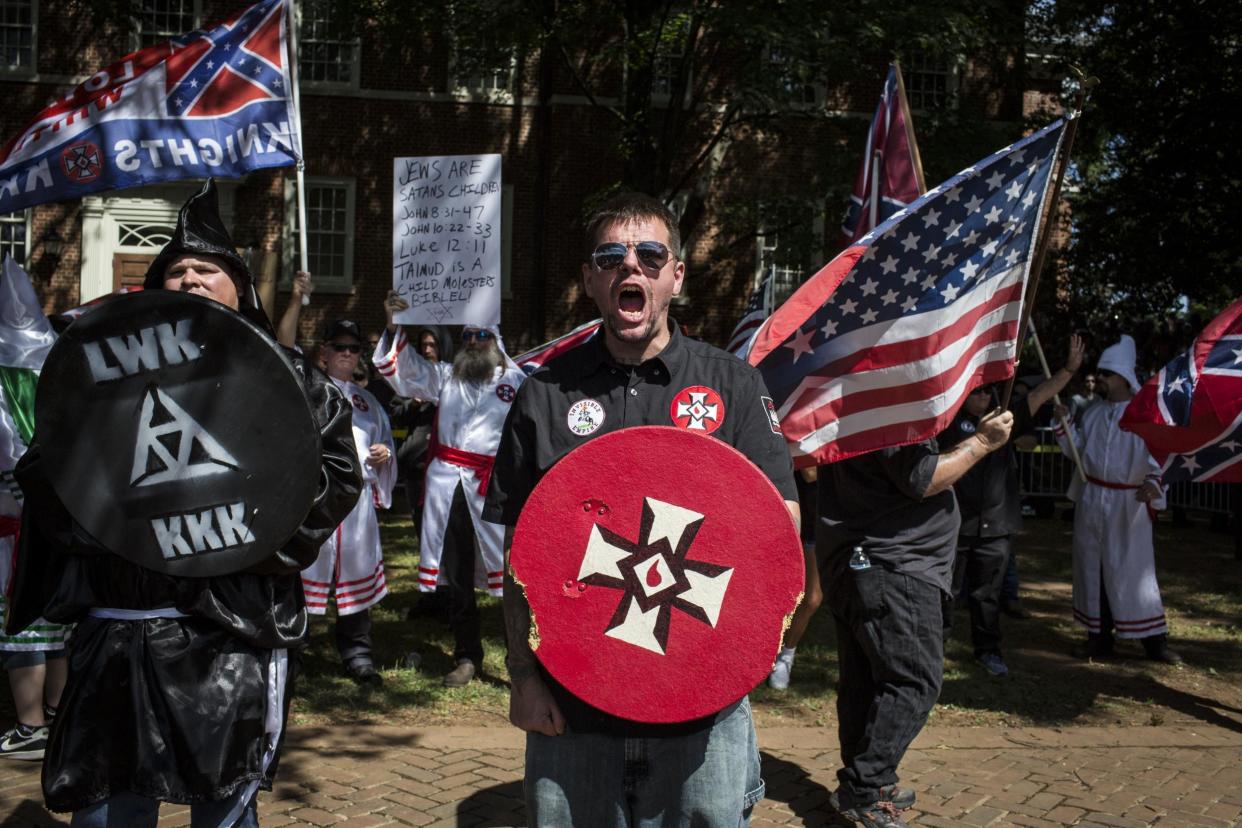White supremacist propaganda nearly doubles on US universities over last year

White supremacist groups are increasingly targeting college campuses to distribute propaganda, according to a new report by the Anti-Defamation League (ADL).
In the past academic year, 292 incidents were reported of stickers, banners, and other physical materials that featured racist and anti-Semitic messages that targeted non-whites, Muslims and LGBTQ people being placed on college campuses across the United States. This was a 77 per cent increase from the previous academic year, which had 165 cases reported.
This tactic is not entirely new. White supremacists have increasingly targeted US college campuses since January 2016 the ADL says, but saw a spike following the election of Donald Trump to the US presidency. Since then, according to the ADL, propaganda efforts have steadily increased with 478 incidents reported since September 1, 2016 on 278 college campuses in 47 states and the District of Columbia.
“College campuses are seen by white supremacists as these bastions of multiculturalism, or liberalism, and these efforts to insert themselves is also part of their tactic to respond to what they perceive as threats to their race,” said Oren Segal, the director of ADL’s Centre on Extremism.
According to Mr Segal, white supremacist groups are trying to “appeal to not only mainstream audiences, but also young audiences that they can reach in a relatively cheap and easy way”.
“When you look at the content of some of these pieces of propaganda, they very much mirror the devices of public discussion in America,” Mr Segal told The Independent, pointing to examples of propaganda that feature slogans like “Keep America American” or instruct viewers to “imagine a Muslim free America,” and report undocumented immigrants.
“These are narratives that they know are on top of people’s minds, and are trying to leverage that as a way to get attention to their narratives and their messages.”
White supremacists groups have worked in recent years to increase visibility as far-right groups stress moving from online to public spaces. These events often turn violent, like at a rally in Charlottesville, Virginia, last August when a man affiliated with a white supremacist group drove his car into a crowd of counter-protesters, killing 32-year-old Heather Heyer and injuring dozens more. The 21-year-old man who drove the car, James Alex Fields Jr was charged with hate crimes this week, nearly a year after the alleged incident.
Groups have also rallied at multiple colleges in the past year, often to intentionally stir controversy and outrage and to prompt protests that draw national attention.
Texas and California were the most frequently targeted states, which the ADL attributes to more concentrated membership in those states from the most active white supremacist groups.

